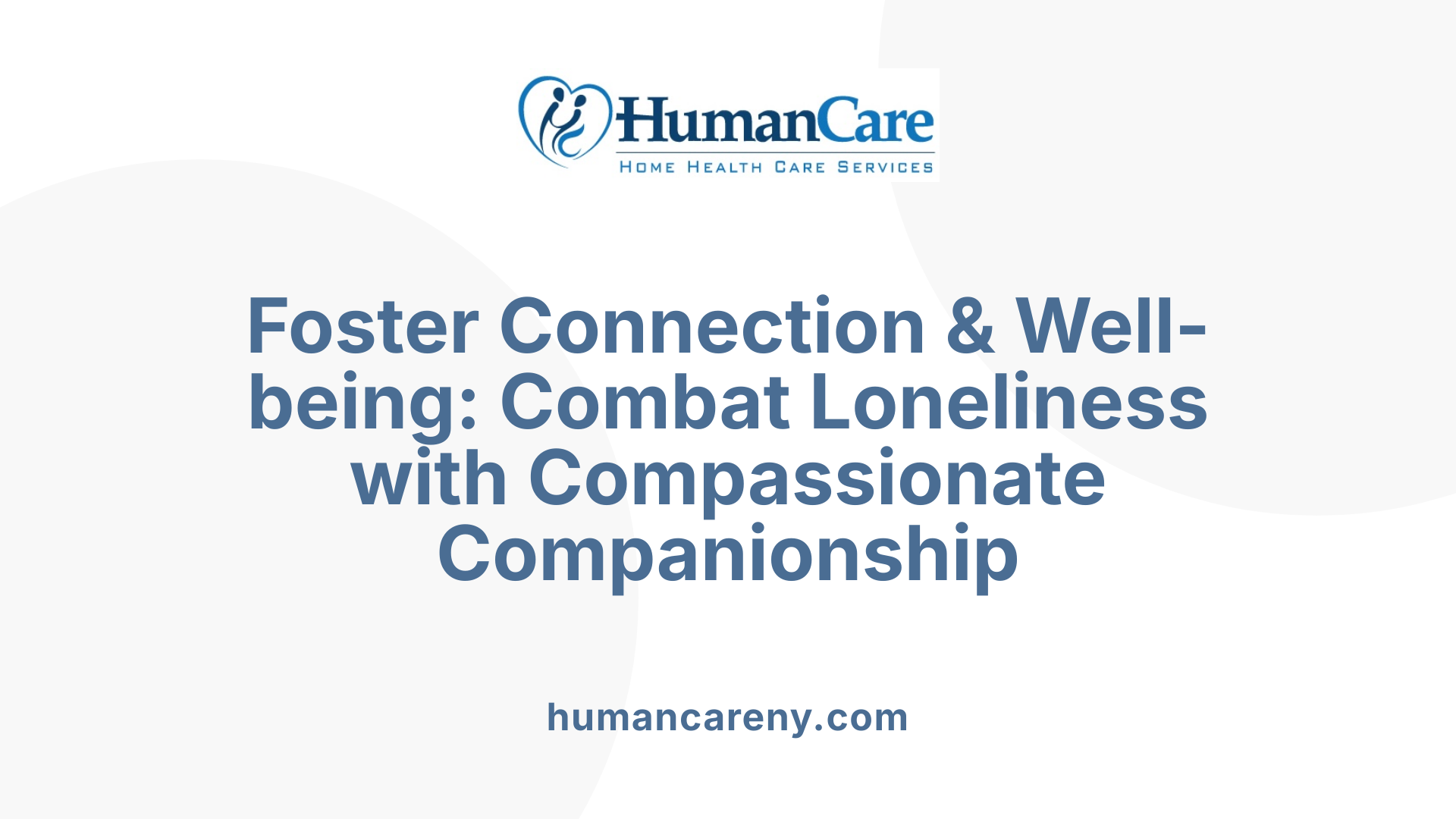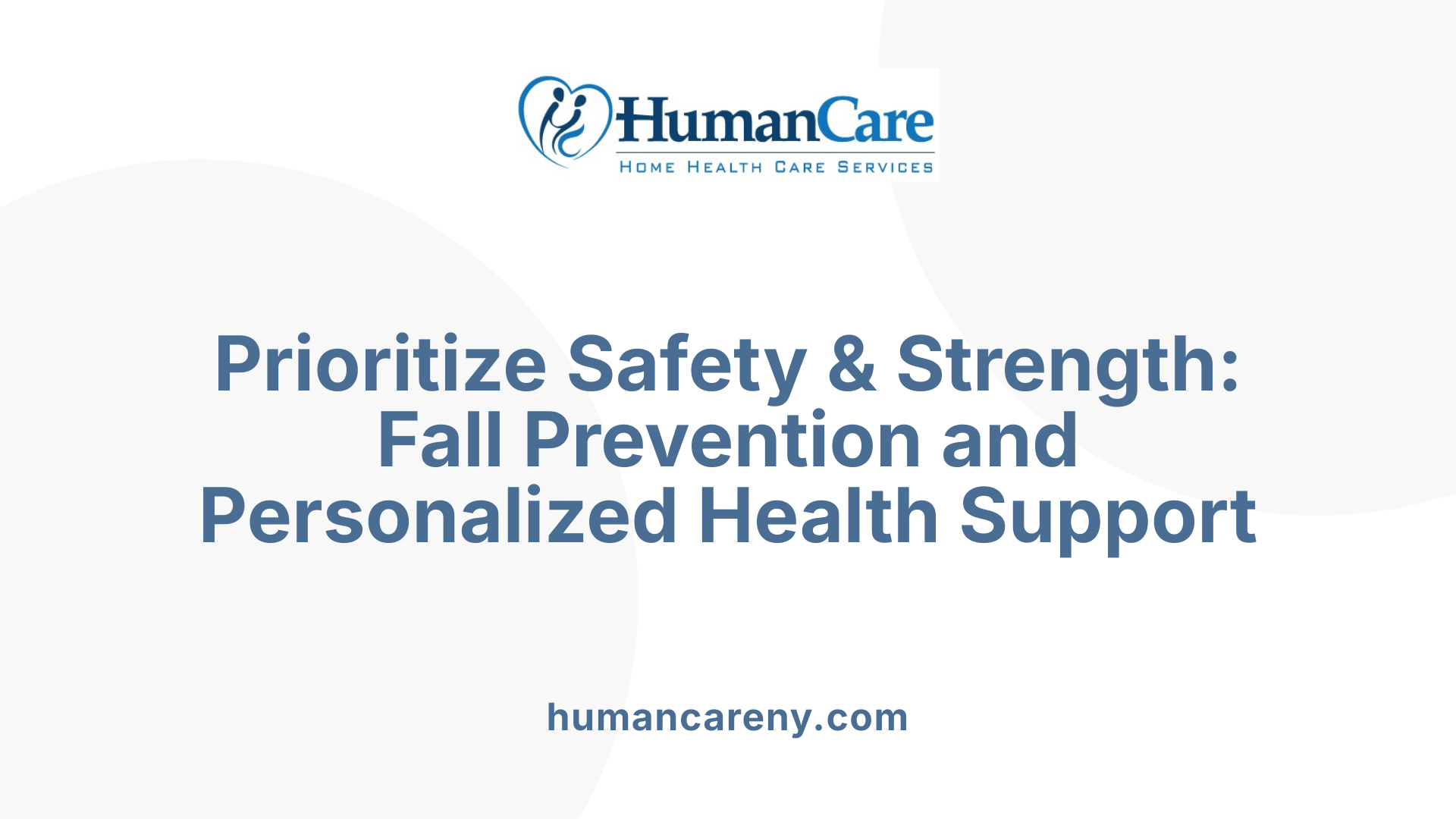Understanding the Role of Companion Care in Senior Life Transitions
As seniors face major life transitions such as moving from hospital to home, coping with reduced independence, or adjusting to new health challenges, companion care emerges as a critical support system. This form of in-home care goes beyond basic assistance by focusing on emotional support, social engagement, and practical help, enabling seniors to age with dignity, maintain well-being, and reduce the risk of readmission or premature institutionalization. This article explores the multifaceted ways companion care supports seniors during these pivotal moments.
Emotional Support and Companionship: Combating Loneliness and Isolation

Emotional support benefits
Companion care provides seniors with vital emotional support that improves their mental health and overall well-being. Having a respectful and compassionate caregiver helps seniors maintain their dignity and self-worth even as they experience reduced independence. This support fosters a strong sense of security and comfort, reducing stress and anxiety through empathetic interactions and relaxation techniques.
Reduction of loneliness and isolation
One in three seniors experiences feelings of loneliness and isolation, which can lead to negative health outcomes including depression and cognitive decline. Companion care offers regular social interaction that significantly diminishes these feelings by providing meaningful connections. Caregivers engage seniors with conversation, shared meals, and participation in hobbies, creating a sense of belonging and community.
Impact on mental health and mood
Regular engagement with companion caregivers can improve seniors’ mood and overall outlook on life. Emotional support through kind and empathetic caregiving reduces symptoms of depression and anxiety and fosters a renewed sense of purpose. Moreover, stimulating activities such as puzzles and reading help maintain cognitive function by engaging the mind.
Companionship activities
Companionship involves diverse activities tailored to each senior’s interests and abilities. These include playing cards, walking, conversations, and community outings. Such activities not only alleviate loneliness but also encourage physical movement and cognitive engagement. This comprehensive approach makes daily life more satisfying and enjoyable while supporting emotional stability.
Overall, companion care plays an essential role in combating loneliness and isolation among seniors. Through emotional support, social interaction, and meaningful activities, it promotes healthier mental health, improved mood, and a higher quality of life.
Maintaining Independence and Dignity Through Practical Assistance

Help with daily activities (bathing, dressing, meal preparation)
Companion care provides seniors with essential assistance in performing daily tasks such as bathing, dressing, and meal preparation. This support ensures that seniors can continue managing their hygiene and nutrition effectively, which contributes to their overall health.
Maintaining hygiene and dignity
Assistance with personal care helps seniors maintain their hygiene and dignity. Caregivers deliver support respectfully and compassionately, promoting a sense of self-worth even as seniors face challenges to their independence.
Respect for autonomy and personal routines
Respecting seniors’ autonomy and personal routines is crucial. Caregivers empower seniors to make decisions about their care and daily schedules, fostering a sense of normalcy and control over their lives.
Medication reminders and management
Medication management is another important aspect of companion care. Caregivers help by providing reminders, organizing medications, and communicating with healthcare providers when needed. This reduces risks associated with incorrect medication intake and supports the senior’s health.
These practical assistance measures not only help seniors remain safe and comfortable at home but also enhance their confidence and independence, allowing them to age in place with dignity.
Transitional Home Care: Ensuring Continuity From Hospital to Home

What is the Role of Transitional Home Care?
Transitional home care supports seniors as they return home from hospitals or other care settings. This temporary care focuses on ensuring that seniors receive continuous and personalized care tailored to their recovery needs. The main goal is to make the transition smooth while promoting the best possible recovery outcomes.
What Skilled Nursing and Therapy Services are Included?
Services often include skilled nursing care such as wound care, medication administration, and health monitoring. Additionally, therapy services like physical, occupational, or speech therapy support the senior’s functional recovery. Mobility assistance and help with activities of daily living are also essential components.
How is Medication and Recovery Monitoring Managed?
Medication management is vital post-discharge to prevent errors and side effects. Caregivers assist seniors in adhering to prescription schedules by organizing medications and communicating with healthcare professionals. Regular monitoring of recovery progress helps detect health changes early, allowing adjustments to care plans when needed.
How Does Coordination with Healthcare Providers Work?
Good communication between caregivers, nurses, and doctors is emphasized to ensure nothing is overlooked in the care plan. Coordinated efforts facilitate adherence to discharge instructions, support follow-up treatments, and provide family caregivers with necessary guidance.
How Does Transitional Home Care Help Reduce Hospital Readmissions?
By providing continuous, attentive care and early detection of complications, transitional home care lowers the chances of hospital readmission. This continuity of care ensures seniors recover safely at home, enhancing patient safety and quality of life.
Physical Health and Safety: Enhancing Well-being and Preventing Risks

Fall Prevention Strategies
Preventing falls is a crucial aspect of companion care for seniors. Caregivers implement home safety adaptations like installing grab bars in bathrooms and improving lighting throughout the home to reduce trip hazards. These modifications create a safer living environment, minimizing the risk of injuries.
Customized Physical Activity
Caregivers encourage seniors to engage in physical activities tailored to their individual abilities and health conditions. These activities help improve strength, balance, and mobility, which not only support independence but also contribute to better mood and overall physical health.
Home Safety Adaptations
Beyond fall prevention, companion care includes ongoing home safety checks to identify and address potential hazards. From rearranging furniture to ensuring clear pathways, caregivers continuously work to maintain a secure environment where seniors can move confidently and comfortably.
Nutritional Support and Dietary Accommodations
Proper nutrition is essential for maintaining seniors' health. Companion caregivers assist with personalized meal planning, grocery shopping, and meal preparation. They ensure dietary needs are met by accommodating specific health requirements such as low-sodium, diabetic-friendly, gluten-free, lactose-free, or heart-healthy diets. Monitoring food and fluid intake also supports management of chronic conditions and overall well-being.
Cognitive Engagement and Emotional Well-being Through Social Interaction
Activities Promoting Cognitive Health
Companion care encourages seniors to stay mentally active through engaging activities such as puzzles, reading, and pursuing hobbies. These activities stimulate the brain and can help slow cognitive decline, supporting memory and overall mental sharpness.
Alleviation of Depression and Anxiety
Emotional support provided by caregivers plays a critical role in reducing symptoms of depression and anxiety among seniors. Regular social interaction and compassionate companionship help seniors feel understood and valued, which improves mood and emotional stability.
Fostering a Sense of Purpose and Self-Worth
Caregivers help foster a sense of purpose by valuing seniors' experiences and encouraging involvement in daily life. This support nurtures self-worth and dignity, empowering seniors to feel confident and connected.
Support for Personal Interests and Hobbies
Companion care also includes encouragement and assistance with personal interests, making daily life more engaging and satisfying. This attention to individual preferences promotes mental and emotional health, making seniors' days enjoyable and meaningful.
Supporting Family Caregivers and Relieving Their Burden

How does companion care provide relief for family members, including those who live at a distance or are full-time caregivers?
Companion care offers valuable relief by providing seniors with regular social interaction and practical assistance. This support eases the pressure on family members who may be balancing caregiving with other responsibilities or living far away. Knowing a trusted caregiver is regularly checking in and assisting their loved one brings peace of mind and reduces stress for family caregivers.
In what ways does companion care facilitate communication with medical professionals?
Caregivers often assist with medication management by reminding seniors about dosages and organizing prescriptions. They also communicate any changes in health or concerns to healthcare providers, ensuring timely medical attention. This coordination helps families stay informed and engaged in the senior's health management without having to be physically present.
How does companion care support family involvement in care planning?
By working closely with families, caregivers help ensure personalized care plans are tailored to the senior's needs. They facilitate discussions and updates regarding the senior’s condition and care requirements, enabling family members to participate actively in decision-making. Early involvement of family and unpaid caregivers in care planning has been shown to delay or prevent institutionalization.
What role does companion care play in reducing caregiver burnout?
Family caregivers often face significant emotional and physical strain, which can lead to burnout. Companion care provides a vital support system by sharing caregiving tasks and offering respite. This reduces the risk of exhaustion and allows family caregivers to maintain their own well-being while ensuring their loved ones receive compassionate, consistent care.
Together, these aspects of companion care enhance the caregiving experience, promote better health outcomes for seniors, and strengthen family involvement in care.
| Aspect | Description | Benefit to Family Caregivers |
|---|---|---|
| Relief for family members | Regular assistance and companionship for seniors | Reduces caregiving burden and provides peace of mind |
| Communication facilitation | Medication reminders, health status updates communicated to professionals | Keeps families informed without needing constant presence |
| Involvement in care planning | Collaborative care plan development and updates involving family | Empowers families in decisions and supports tailored care |
| Burnout reduction | Sharing caregiving responsibilities and offering respite for families | Prevents emotional and physical exhaustion |
Expanding Access and Improving Outcomes Through Coordinated Care
Importance of early and coordinated home care services
Early integration of home care services plays a vital role in supporting seniors, especially during transitions from hospitals to their homes. Prompt access to community-based supports helps prevent avoidable hospital readmissions and premature placement in long-term care facilities. By addressing seniors’ needs sooner, coordinated services promote better recovery outcomes and enable aging in place.
Improved communication among providers and caregivers
Effective communication and coordination between healthcare providers, caregivers, and family members are essential for comprehensive care plans. Ensuring transparency prevents gaps in service and allows timely intervention when seniors’ health status changes. Involving family and unpaid caregivers early improves care continuity and supports collective decision-making.
Preventing premature long-term care placement
Timely home care services, including transitional care and companion care, offer supervision, emotional support, and practical help that reduce stress and risk factors leading to institutionalization. Supporting seniors and their caregivers at home can delay or avoid the need for long-term care by maintaining seniors’ independence and well-being.
Economic benefits of companion care for agencies and clients
Companion care is a cost-effective service that home care agencies can easily integrate with minimal training. It expands agencies’ service offerings, attracting more clients seeking social engagement for their loved ones. For families, companion care provides valuable relief, enhances seniors’ quality of life, and supports safer, healthier aging at home, thus reducing healthcare costs linked to isolation-related health decline.
Caregiver Growth and Quality Assurance in Companion Care
Professional caregiver training and skill enhancement
Professional development is central to delivering high-quality companion care. Caregivers receive ongoing training not only in assisting with daily activities but also in emotional support techniques, safety practices like fall prevention, and managing specific health needs such as dietary accommodations. This continuous skill enhancement helps caregivers adapt to seniors’ evolving needs while fostering a more enriching and supportive environment.
Caregiver retention amid shortages
In the current landscape of caregiver shortages, companion care offers a pathway for career growth, which is critical for retention. Agencies that invest in caregiver training and provide opportunities to expand their roles see improved job satisfaction. This approach helps reduce turnover and ensures seniors receive consistent, experienced care. Enhanced skill sets also boost caregivers’ confidence, empowering them to meet varied senior needs effectively.
Personalized care plans ensuring dignity and respect
Quality companion care revolves around individualized care plans tailored to each senior’s preferences, routines, and health requirements. This personalization promotes autonomy and dignity, allowing seniors to maintain self-worth throughout their care journey. Caregivers work collaboratively with families and healthcare providers to deliver respectful, compassionate support that upholds seniors’ privacy and decision-making power.
Building trust and client satisfaction
Trust is foundational in companion care relationships. Skilled caregivers who demonstrate empathy, reliability, and respect foster strong connections with seniors and their families. This trust enhances client satisfaction and reassures families about their loved ones’ well-being. Ultimately, professional caregiver growth combined with personalized, respectful care establishes a framework for sustained quality and successful aging in place.
The Transformative Impact of Companion Care on Seniors’ Lives
Companion care stands as a cornerstone for seniors adjusting to life transitions, offering more than just assistance—it delivers emotional sustenance, promotes independence, and bolsters mental and physical health. By bridging gaps between healthcare settings and home, supporting family caregivers, and fostering meaningful connections, companion care improves recovery outcomes and enriches quality of life. As demand grows and care models evolve, prioritizing compassionate, coordinated, and personalized companion care remains essential for helping seniors navigate change with confidence, dignity, and well-being.
References
- The Unbeatable Benefits of Companion Care for Seniors
- Benefits of Transitional Home Care
- Hospital to Home: Supporting the Transition ... - PubMed Central
- Why Home Care Providers Are Increasingly Offering ...
- The Benefits of Companion Care for Seniors
- Companion Care for Seniors | All At Homecare Northeast Florida



